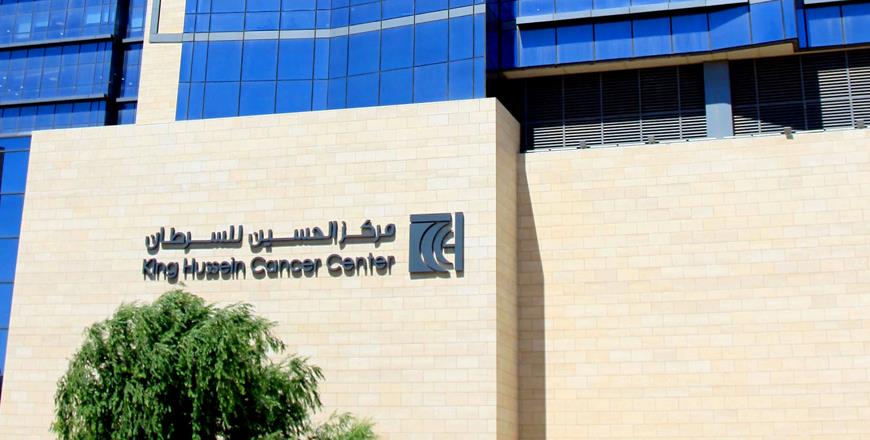
KHCC Achieves Breakthrough In Cancer Treatment Using Modified T-Lymphocytes
This "pioneering" treatment is supported by the establishment of a state-of-the-art Good Manufacturing Practices (GMP) facility for processing T-lymphocytes, which enhances the centre's position as a global leader among advanced medical institutions fighting cancer, the Jordan News Agency, Petra, reported.
The T-lymphocytes are extracted from the patient, genetically modified in the GMP lab to become capable of identifying and effectively attacking cancer cells, increasing the chances of eradicating tumours, and reducing relapse rates.
KHCC Director General Asem Mansour expressed pride to achieve this "milestone," which reflects the centre's commitment to offering the latest treatments to cancer patients suffering from blood cancer.
The treatment gives hope to many Jordanian and Arab patients who have exhausted other treatment options, where the use of modified T-lymphocytes represents the future of cancer treatment, Mansour said, adding: "We are committed to providing new and effective treatments to improve outcomes."
He stressed that this achievement is part of KHCC's strategic plan to localise this technology, where KHCC initially worked with a global partner to treat two patients under joint supervision, with successful outcomes.
The director general noted that KHCC began developing its local capabilities to produce these cells in its own laboratories, and the centre is now "fully qualified" to perform this procedure independently.
He added: "This significant achievement has placed us among the world's leading cancer centres. It is an evidence of our continuous efforts to achieve excellence and innovation in delivering healthcare to our patients."
Mansour stressed that the centre is now fully prepared to start using this treatment for the first time in the near future, referring to the importance of immunotherapy, which relies on using modified T-lymphocytes, enhancing the effectiveness of treatment against various types of cancer, especially those resistant to conventional treatments like chemotherapy and radiotherapy.
This approach increases the chances of recovery, improves treatment response rates, and reduces side effects compared to traditional therapies, he said, adding that immunotherapy precisely targets cancer cells, minimising damage to healthy cells.
Mansour also pointed out that introducing immunotherapy to the centre provides researchers with opportunities to explore new areas in medical research, such as better understanding of how the immune system responds, or developing new techniques to improve treatment effectiveness.
He added that using advanced technologies like modified T-lymphocytes highlights the centre's position as a leading institution in both treatment and research, reflecting its openness to various international collaboration opportunities and participation in advanced clinical studies.

Legal Disclaimer:
MENAFN provides the
information “as is” without warranty of any kind. We do not accept
any responsibility or liability for the accuracy, content, images,
videos, licenses, completeness, legality, or reliability of the information
contained in this article. If you have any complaints or copyright
issues related to this article, kindly contact the provider above.
Most popular stories
Market Research

- Bitmex Reports Over 185% Liquidity Growth Following AWS Tokyo Migration
- Tokenfi And New To The Street Announce National Media Partnership To Reach 219M+ Households
- Chartis Research And Metrika Release Comprehensive Framework For Managing Digital Asset Risk
- Xdata Group Named Among The Top 66 Saas Innovators In Techround's 2025 List
- Cregis At TOKEN2049 Singapore 2025: Unlocking The Next Frontier Of Adoption
- On-Chain Cultural Assets: Decoding City Protocol's IP Capital Market


















Comments
No comment